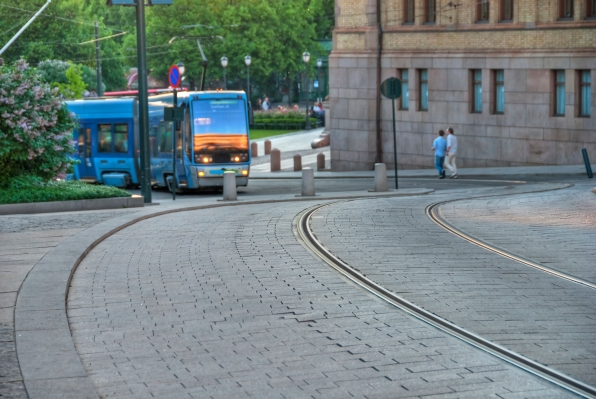News
New e-book: ALTERAÇÕES AMBIENTAIS EM PERSPECTIVA HISTÓRICA
- Published in News
ESHS in-between meeting. Rethinking the history of the sciences in Europe
- Published in News
ESHS in-between meeting. Rethinking the history of the sciences in Europe
Faculdade de Ciências da Universidade de Lisboa; Museu da Cidade
04 outubro até 05 outubro 2019
SOBRE ESTE ENCONTRO
A European Society for the History of Science, actualmente presidida por Ana Simões, co-coordenadora do CIUHCT, organiza encontros intercalares que alternam com os seus congressos. O encontro deste ano, Rethinking the history of the sciences in Europe: historiographical approaches and future prospects, será em Lisboa. O primeiro dia, 4 de Outubro, terá sessões abertas ao público, sem necessidade de inscrição prévia, que irão decorrer no Anfiteatro da FCiênciasID, no edifício C1, Piso 3, da Faculdade de Ciências da Universidade de Lisboa.
PROGRAMA (4 DE OUTUBRO)
9:00. Welcome
9:30. Agustí Nieto-Galan (CEHIC, Universidad Autonoma de Barcelona), How to write a ‘European’ History of Science? Some Critical Reflections
10:15. Maria Paula Diogo (CIUHCT, NOVA University of Lisbon), Europe goes global: narratives from the History of Technology perspective
11:00. Coffee Break
11:30. Frank James (Royal Institution), Davy’s career in European perspective
12:15. Simone Turchetti (CHSTM, University of Manchester), Science diplomacy as a concept and its significance for historians of science
13:00. Lunch
14:30. Roberto Lalli (MPIWG, Berlin), Socio-epistemic networks and the history of science in Europe
15:15. Mitchell Ash (University of Vienna), Science and politics as resources for one another: rethinking a relational history
16:00. Karine Chemla (CNRS, SPHERE), Remarks on the shaping of European historiographies of mathematics in the 19th and the 20thcenturies and their present-day impact
16:45. Coffee Break
17:00. Final comments by Clara Florensa (CEHIC) and Davide Scarso (CIUHC) and general discussion
18:30 (Recommended closing time)
WFBMA2019 - Workshop: Forests Between the Margins of the Atlantic (Provisional Program)
- Published in News
CfP: An Existential Toolkit for Climate Educators Workshop
- Published in News
Seminário interdisciplinar: O Ambiente e a História
- Published in News
Seminário interdisciplinar, co-organizado com o THD — Teoria e História do Direito, Centro de Investigação da ULisboa, com o objectivo de discutir a evolução das políticas de proteção do ambiente.
O Ambiente e a História - Uma reflexão multidisciplinar sobre o tema
Seminário interdisciplinar que tem como objectivo discutir, a partir do contributo de diferentes disciplinas, a evolução das políticas de proteção do ambiente em face aos problemas ambientais que surgiram com a evolução da sociedade, dentre eles a atual questão das alterações climáticas.
Programa
Painel I
Moderadora – Augusta Mattos (IHC — NOVA FCSH)
09:20 – O ambiente e a sua “proteção” no Direito português antigo: uma análise histórica e crítica — Margarida Seixas (THD – FDUL)
09:40 – A exploração da mata atlântica e rios na colônia brasileira. Cartas do sec. XVI e XVII — Sandro Alex Simões (THD)
10:00 – Pré-história do direito do ambiente português na época contemporânea — Miriam Afonso Brigas (THD – FDUL)
Painel II
Moderadora – Paula Borges Santos (IHC – NOVA FCSH)
10:40 – Soluções ambientais uma realidade já na Idade Moderna? Floresta renovável nos seculos XVIII e XIX em Portugal — Cristina Joanaz de Melo (IHC — NOVA FCSH)
11:00 – O plástico, a nova praga ambiental — Carla Amado Gomes (FDUL)
Intervalo para o Almoço
Painel III
Moderadora – Maria de Fátima Nunes (IHC – Universidade de Évora)
14:00 – A globalização e o Impacto sobre o Ambiente — Filipe Duarte Santos (FCUL)
14:20 – O ato administrativo global na proteção do ambiente — Vasco Pereira da Silva (FDUL)
14:40 – Alterações Climáticas: entre a Crise e o Colapso — Viriato Soromenho-Marques (FLUL)
Comissão Científica:
Paula Borges Santos (IHC – NOVA FCSH)
Maria de Fátima Nunes (IHC – Universidade de Évora)
Cristina Joanaz de Melo (IHC – NOVA FCSH)
Pedro Caridade de Freitas (THD – Universidade de Lisboa)
Eduardo Vera Cruz (THD – Universidade de Lisboa)
Norwegian Graduate School in History: "Environmental and Climate History: The Role of History in Society" (16-18 December 2019)
- Published in News
CFP: EAUH 2020 “Urban Space and Inequality, Middle Ages to 20th-Century”
- Published in News
Call for Papers EAUH Antwerp 2020: Urban Space and Inequality - Middle Ages to 20th Century (M-SOC-1)
For the next European Association for Urban History (EAUH) Conference in Antwerp, 2-5 September 2020, we invite paper proposals for a Main Session (M-SOC-1): ‘Urban Space and Inequality, Middle Ages to 20th-Century’ (organizers: Tim Soens, University of Antwerp and Richard Rodger, University of Edinburgh)
The goal of the session is to question how inequality affected the social topography of cities. The session aims to explore recent insights in urban research that show an increase in inequalities from the Black Death to the dawn of the 20thC. Stimulated also by new generations of Historical GIS, we invite contributions on residential segregation and social topography to examine long run patterns of urban inequality.
Inequality is on the rise and this is increasingly seen as problematic. Its reduction features prominently on the list of Sustainable Development Goals advanced by the United Nations. Since Piketty’s Capital (2013) renewed attention has been paid to the long-term development of wealth – and to a lesser extent income – inequalities, with most historians and economists (Alfani, Scheidel, Milanović) observing an almost continuous rise in inequality, which apparently could only be curbed by catastrophic societal disruptions – think of both World Wars – and the significant redistributions of wealth that followed in their wake.
For (European) cities as well a significant increase in economic inequalities from the 15th century has been observed. Crucially, however, we lack insights into the mechanisms explaining increasing inequality and the geographic variations in inequality both between and within towns and cities.
In this EAUH session we seek to advance space as a promising way to explore evolutions in urban inequality. For an increasing number of towns and cities Historical GIS infrastructures have been developed which facilitate the mapping of wealth and income inequalities. Research on the social topography of cities often assumed that pre-1800 cities were mostly characterised by so-called ‘meso-segregation’, separating elite housing along main roads from the urban poor in back alleys ‘around the corner.’ In contrast, 19th and 20th century cities witnessed an increasing ‘macro-segregation’ between neighbourhoods with a clearly distinguished social profile. If this is so, the relationship between the history of inequality and the social topography of the city is subject to considerable interpretive change over time.
This session aims to confront recent advances in the study of urban inequality with studies of urban space and social topography. We welcome papers dealing with:
· the spatial imprint of urban inequality
· the use of Historical GIS to analyse inequality
· the social fragmentation of neighbourhoods
· the interaction between residential segregation and changes in welfare levels e.g. via the housing market
· the impact of shocks (warfare, epidemics) on the social topography of cities
· the relationship between individual social mobility and housing
· the impact of policy decisions (clearances, infrastructural investment)
Submission of paper proposals before October 4 via: https://www.uantwerpen.be/en/conferences/eauh2020/papers/call-for-papers/
More information on the session: This email address is being protected from spambots. You need JavaScript enabled to view it. or This email address is being protected from spambots. You need JavaScript enabled to view it.
More information on the conference: https://www.uantwerpen.be/en/conferences/eauh2020/








